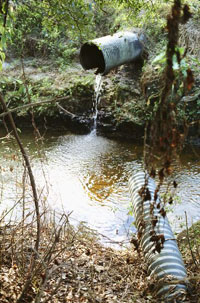Ecological Risk Assessment


When conducted for a particular place such as a watershed, the ecological risk assessment process can be used to identify vulnerable and valued resources, prioritize data collection activity, and link human activities with their potential effects. Risk assessments can also provide a focal point for cooperation among local communities and state and federal government agencies.
NCEA is committed to advancing the science of ecological risk assessments and accomplishes this goal by performing risk assessments, developing risk assessment guidance (through workshops, case studies, and handbooks), and conducting research on methods. The work NCEA scientists have done in these areas is seen around the world as groundbreaking and has paved the way for further advances in environmental protection.
Additional Resources:
![[logo] US EPA](https://webarchive.library.unt.edu/eot2008/20081106095123im_/http://www.epa.gov/epafiles/images/logo_epaseal.gif)